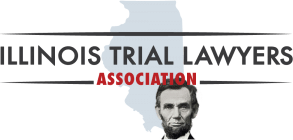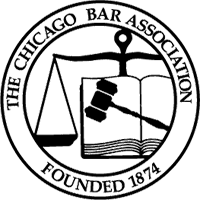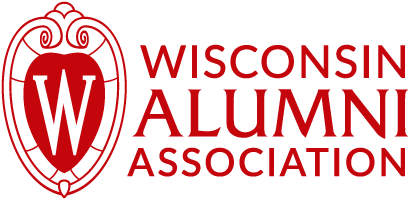Nursing home negligence refers to a caregiver’s intended harm to an elderly individual. While the specific types of nursing home neglect vary, common examples of nursing home neglect include medical neglect, a neglect of basic needs such as sanitary needs and personal hygiene, and social or emotional neglect. Realizing that your loved one is the victim of nursing home negligence is extremely devastating and can cause you to feel panicked about the necessary steps to file a lawsuit. Our Chicago nursing home negligence attorney is a phone call away and can help you build your case.
Each year, families entrust the care of their loved ones to nursing homes in places like Chicago, LaGrange, Glen Coe and Evanston. Each year, hundreds of nursing home residents are subjected to neglect and abuse. The Illinois personal injury attorneys at Shea Law Group feel that our elderly have the right to always be treated with dignity and respect.
What Is Considered Nursing Home Neglect?
With more and more nursing home neglect and abuse cases coming out, you may wonder what exactly constitutes nursing home neglect and reflect on whether or not your loved one could be a victim. While nursing home negligence refers to the specific intent to hurt the elderly, nursing home neglect refers to a breach of duty to the level of care that is expected within the nursing home. There are four primary types of nursing home neglect:
- Emotional or social neglect: Those at nursing homes should have a planned out schedule of care throughout the day, getting the chance to socialize, eat, and overall treated with respect. Those who experience emotional or social neglect may be left alone on a regular basis or accidentally snapped at by a staff member.
- Personal hygiene neglect: Many nursing home patients need additional help with day-to-day forms of hygiene such as brushing their teeth, bathing, brushing their hair, laundry, or other forms of cleaning. If patients are not receiving the help that they need, this is a sign of nursing home neglect.
- Basic needs neglect: Food, water, and a safe, clean living environment are all expected aspects of any given nursing home. If your loved one is not receiving these basic needs, you should contact our nursing home negligence lawyers in Chicago for help.
- Medical neglect: Medical attention, such as providing help with medications, doctors appointments, bed sores, infections, cuts, diabetes, cognitive diseases, etc. All of the above should be treated by the nursing home.
There are times when elder abuse is the result of understaffing and inadequate training. The Chicago nursing home negligence attorneys at Shea Law Group have also seen the terrible conditions where some elderly nursing home residents live and have handled cases where the medical professionals that were caring for our clients were improperly credentialed and were unqualified to care for nursing home residents. The Chicago injury attorneys at Shea Law Group think that it is never acceptable for nursing home corporations to put their business interests before the interests of their elderly residents and allow nursing home negligence or neglect to take place in their facilities.
We Will Be The Voice For The Elderly
Our team has dealt with the following forms of nursing home neglect and abuse and can help you and your family navigate this stressful situation. Our Chicago nursing home neglect and abuse lawyers at Shea Law Group have fought these nursing home businesses when they have been negligent in caring for their residents and have helped victims and their families obtain fair compensation in all types of nursing home negligence including:
- Unjustified falls or injuries: If your loved one is not in a position to get around without assistance, the nursing home should be aware of this and help them with tasks like getting in and out of bed, walking around and exploring the halls, going to the dining room for meals, etc. If your loved one is suffering from an injury because of an avoidable fall, this is considered nursing home neglect and can be pursued legally.
- Physical Abuse or Emotional Abuse: Not all nursing home negligence is solely physical. While there are many reported cases of devastating physical abuse in nursing homes, emotional abuse is just as common, although there aren’t as many red flags.
- Bedsores and ulcers: These develop as a result of spending too much time in bed and not enough time upright. If your loved one is bedridden, bedsores are still avoidable. Your loved one should be positioned in a way that is comfortable for them and
- Complications caused by failure to provide medication or medical care when required, a task that many seniors need help with, especially if their memory is not what it used to be.
- Negligent medical care, medical malpractice
- Malnutrition and dehydration: Getting the right food, drink and nutrients is an important part of living in a nursing home. Without access to the right food and drinks,
- Severe weight gain or weight loss: If your loved one has been a consistent weight their whole life, or at least for the majority of their life in the nursing home, any drastic weight gain or weight loss could be a sign of nursing home neglect or abuse.
- Unreasonable restraint
- Prescription errors: Your nursing home is responsible for making sure you are taking the right prescriptions at the right time. Any prescription errors can cause your loved one to become extremely sick
If you or a family member has been the victim of elder abuse or nursing home negligence, our attorneys will fight to see that the negligent party is held liable for their actions and demand that they compensate the victim for their part in the abuse or negligence. The Chicago injury attorneys at Shea Law Group aggressively pursue every avenue to ensure you are properly compensated for your pain, suffering, or loss as soon as possible. Our representation costs nothing until you are compensated for your injuries. Please call us at 1-877-365-0040 or contact us online for a consultation.








